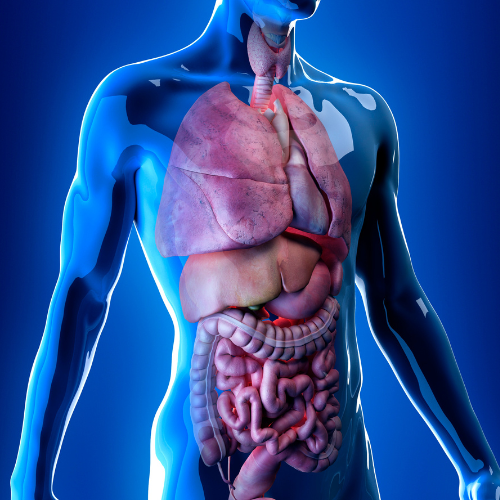Lung conditions and respiratory tract infections (RTIs) cost the NHS £11 billion annually. The incidence of RTIs (and worse outcomes) is higher in disadvantaged groups, and in areas of social deprivation. Most RTIs are viral, but despite this, many people who have simple RTIs are often prescribed unnecessary antibiotics, which is costly and increases the risk of antibiotic resistance. RTIs are frequently accompanied by intestinal symptoms such as diarrhoea, with associated changes in the gut microbiota. The respiratory tract and the intestine, two distinct organs, have different microbiota, linked via the immune system, but the precise nature of the relationship between them is unclear.
Dr Claire Woodall, Senior Research Associate at the School of Cellular and Molecular Medicine at the University of Bristol, is working to understand this link. She is the recipient of a Daphne Jackson Research Fellowship hosted at the Elizabeth Blackwell Institute, sponsored by The University of Bristol and the Medical Research Council. Her Fellowship has enabled her to return to a research career after taking a break for seven years to care for family.
Return Fellowship
“The Daphne Jackson Fellowship was ideal for me,” said Dr Woodall. “It’s a retraining Fellowship for anyone who has taken a break from research for two or more years for family, caring or health reasons. It allowed me to gradually return to research, let me spend time with my pre-GCSE teenage children and allowed me to retrain in microbial bioinformatics and systematic reviews. These skills are in high demand and are transferable to a wide range of research topics, which greatly assisted my advancement to a Senior Research Associate position with Professor Ruth Massey in the School of Cellular and Molecular Medicine in July last year.”
A missing link?
Very little is known about the link between your gut and respiratory microbiome, especially in acute seasonal respiratory tract infections. This study will unravel the fascinating associations between the gut-respiratory microbiomes in adults with RTI symptoms. The study predicts people more susceptible to respiratory infection will have different microbiomes compared to healthy people.”
Stool and saliva
As part of a project led by Professor Alastair Hay and Dr Ashley Hammond, Dr Claire Woodall investigated potential microbial biomarkers which might indicate susceptibility to community acquired RTIs in otherwise healthy adults. This study involved the collection of stool and saliva samples from adult participants to identify gut and oral microbiomes (microbe communities). Dr Woodall said she used the Covid lockdown period to learn microbial bioinformatics and apply these skills to identify possible microbial biomarkers in the gut and saliva from people more susceptible to respiratory infections.
Intriguing results
In the most RTI suspectable participants saliva Dr Woodall found elevated levels of bad bacteria Streptococcus sobrinus, which is linked to dental cavities and mouth disease and lowered good bacteria Lactobacillus salivarius. In the gut she found increased levels of Veillonella, linked to viral infection vulnerability and is thought to be a key microbe in colorectal associated cancer.
“This was a small feasibility study,” explained Dr Woodall. “But we’re hoping for further funding to investigate more participants in the community, as this might be a rapid and novel method of identifying the most vulnerable members of our community most susceptible to respiratory infection.
The future
Although this work is in the early stages, we have confidence that Dr Woodall and all the study team will successfully refund this much needed topical research. To date, Dr Woodall as a Daphne Jackson Fellow has produced 4 publications (3 as first author), presented this work as posters and talks at both national and internal conferences and was awarded a Bristol Clear outreach prize which suggests she has a very promising future ahead.
If you know someone who is looking to return to their research career after a break of 2 years or more, please share what the Daphne Jackson Trust do; supporting research returners – across STEM, social sciences, arts & humanities.
